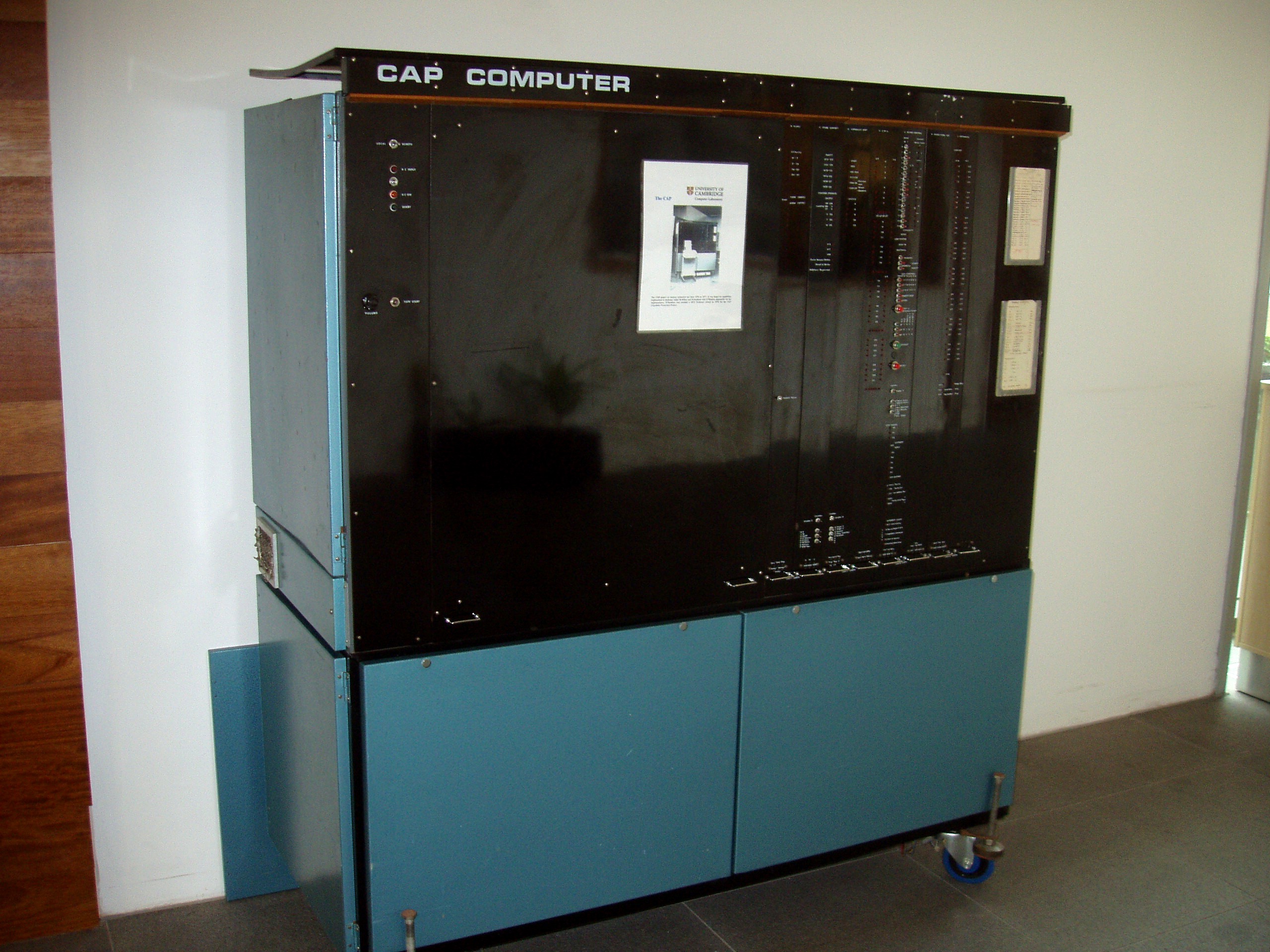| Title: |
CAP - The Last Cambridge Computer
|
| Speaker: |
Andrew Herbert |
| Date: |
Thu 18th April 2013 |
| Time: |
14:30 |
| Location: |
Fellows Library of the Science Museum, Exhibition Road, London SW7 2DD |
|

|
About the seminar
CAP was the last mainframe computer built by the Cambridge University Computer Laboratory
and thus a descendent of EDSAC, EDSAC 2 and Titan.
Conceived in response to some of the problems encountered when Cambridge wrote the Titan
operating system, CAP was given a virtual memory system based on the concept of
'capabilities'.
Capabilities are protected descriptors representing the privilege to access a segment
of memory or call an individual system function, thereby enabling fine grained protection
within the operating system and between user programs.
Several operating systems were built for the machine exploring different forms of capability
organization and CAP went on to be a valued private computing service for the
Cambridge Systems Research Group, during the subsequent development of the Cambridge Ring
and its associated distributed operating system.
In terms of the original goal, the need for a machine like CAP was displaced when systems
programmers switched from using assembly code to high-level languages.
Sadly by the end of its life CAP was seen as backwater.
However, with the benefit of 25 years hindsight, it can be seen to have anticipated several
subsequent developments in networked and distributed operating systems and in modern
approaches to virtualization.
Having worked on CAP as a research student and subsequently as a lecturer at Cambridge,
Andrew Herbert will talk about the context in which CAP was designed, explore the novel
aspects of its architecture and show how CAP ideas have influenced more modern systems.
He will also expose some of its very Cambridge quirks.
On the human side he will talk about the respective roles of Maurice Wilkes,
David Wheeler and Roger Needham in the leadership of the CAP project.
About the speaker
Andrew Herbert OBE, FREng, is the Manager of the EDSAC Replica Project.
Before retiring in 2011 he was the Chairman of Microsoft Research for the EMEA Region
with his main base in Cambridge where he followed in the footsteps of Roger Needham,
who had been his PhD Supervisor at Cambridge while working on CAP.
Between leaving Cambridge University in 1985 and joining Microsoft in 2001,
Andrew built a successful career as a technology entrepreneur.
Click  to see a podcast of the event
to see a podcast of the event
|
